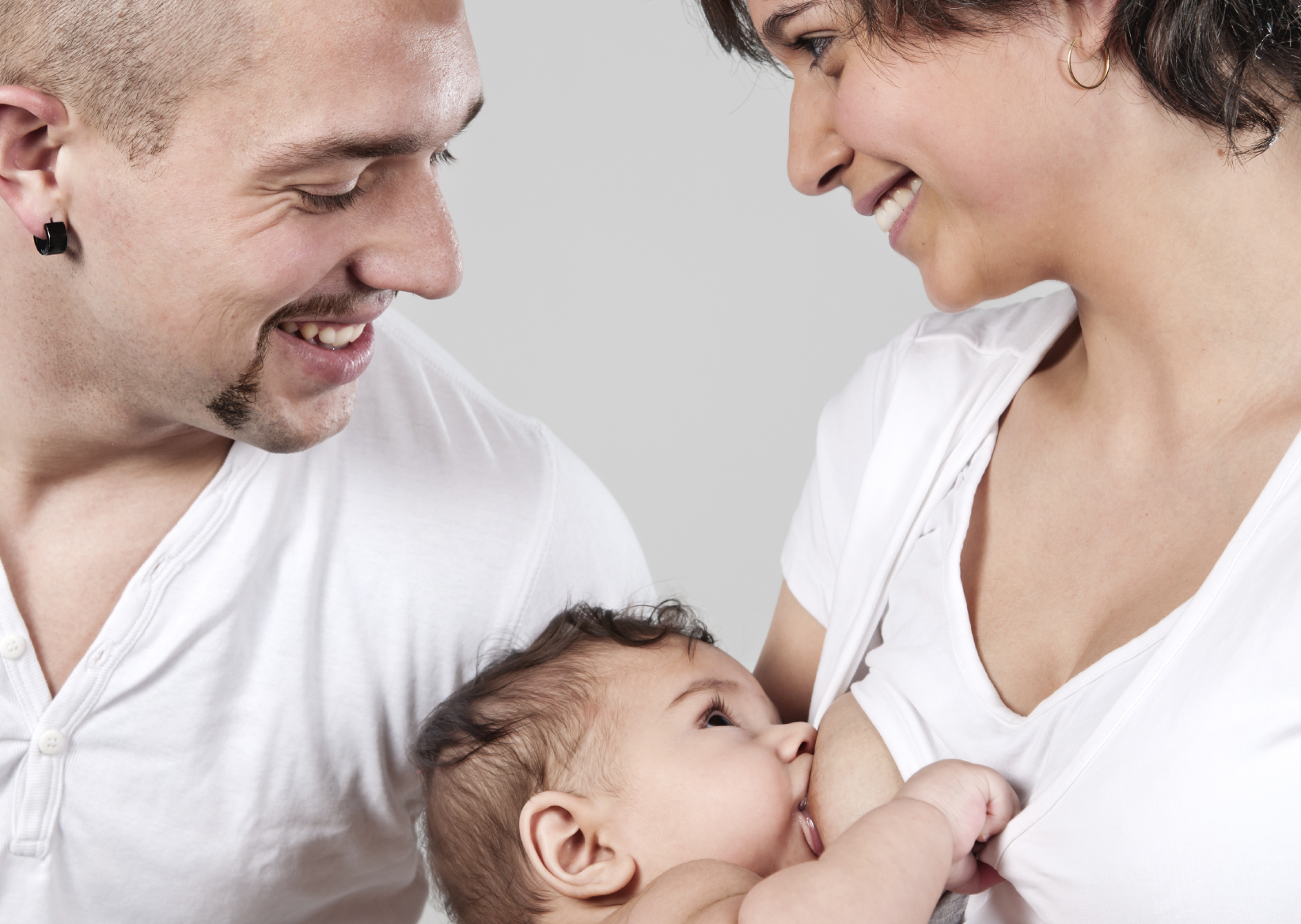
About DadPad, Attachment and Bonding, Key Content, Long Read, Mental Health
About DadPad: Why dads’ mental health matters
Posted on 9th October 2020
We were delighted to get the chance to sponsor and collaborate with Mark Williams for his 10-year report on his work on fathers’ mental health, “Fathers Reaching Out – Why Dads Matter.” This, together with the DadPad team’s attendance at last month’s AIMH Annual Infancy Conference, which also focused on dads, means that we’re even more up-to-speed on research into dads’ role as a parent, and the effect that their own mental health difficulties can have on those around them. As tomorrow is #WorldMentalHealthDay, this seemed a good chance to cobble together a quick blog post for you, summarising some of the key information that we’ve picked up from these two sources on why dads matter.
Why dads matter
Mark’s report title is so important – why do dads matter?
There are, of course, a huge number of answers to this question, but we’re going to focus in on those relating to mental health and child development, and from three different perspectives:
- his role as a supportive co-parent (perhaps, the more traditional perception of the role of ‘dad’)
- his role as a parent in his own right
- the impact of his own mental health on those around him
These three perspectives roughly reflect the three key ‘waves’ of research that have take place in recent years in relation to dads, as explained by Raq Ibrahim – Research and Development Officer at Mellow Parenting – during his slot at the AIMH Conference:
- 1990-2000: research appreciates the benefits/qualities that dad can bring
- 2000-2010: research identifies the benefits for children of having a positively-involved dad
- 2010-2020: research starts to focus in on:
- the dads’ perspective, including his mental health, and
- the barriers and challenges which need to be overcome in order to engage and support dads

Dad’s role as supportive co-parent to mum
One of the first, and fairly traditional, expectations that are had of dads is that they are there to support mum, who is generally the primary caregiver. This role reflects historic gender and cultural expectations and assumptions: that dad is the breadwinner/provider and that mum is the ‘parent’:
- Mum carries and grows the baby, mum gives birth to the baby, mum breastfeeds, cares for and bonds with the baby.
- Dad might be around for a bit during the first few weeks of life – if he’s taken paternity leave – but he’ll soon be heading back off to work, leaving mum to take the lead on caring for the new little person in the house. Dad’s generally going to be around in the evenings and at the weekends (depending on his job, and the shifts he works) but – with mum in the driving seat – his role is, at best, going to be viewed as mum’s supporter. Phrases like “Just wait until your dad gets home!” really sum up this view on parenting roles…
Despite the fact that this view on roles and responsibilities has – thankfully – undergone a huge shift in recent years, it’s still worth briefly reflecting on what the research has to say on the need for dad to have good mental health in order to support mum, especially when her own mental health may be suffering.
Looking out for maternal mental health difficulties
One of the key roles that any partner will play to a mum who’s recently given birth is being the ‘eyes and ears’ on a day-to-day basis, looking out for any changes in her behaviour which might suggest that she is in need of further support. As we set out in the DadPad, some of the key things for a dad or partner to ask themselves, if they have concerns that mum might be experiencing some mental health difficulties, are:
- Does mum feel that she is having difficulty bonding with the baby?
- Is she feeling sad or depressed?
- Was she separated from baby at or soon after birth?
- Is she constantly feeling exhausted?
- Did she have a difficult birth?
- Does she say that she feels unsupported or afraid?
- Is mum acting or behaving in a way that is unusual or out-of-character for her, such as not sleeping, or being excitable, confused, or increasingly anxious?
We advise dads to keep a look out for any of these things happening and to speak to their Midwife, Health Visitor or GP as soon as he can, in order to get help, if the symptoms last for more than a day or two. We also remind him that it can be difficult to tell people when you’re feeling anxious or upset, and that mum may well need his support to access help and explain to others how she is feeling.
Being able to support mum in this way is not only going to have a positive impact on mum, but also on their baby, any other children, and their whole family.
Protecting the child from the impact of maternal mental ill health
As well as helping to get mum the help that she might need if she experiences any mental health difficulties, dad maintaining his own good mental health during the perinatal period has other positive impacts on the baby. For example, Khan [2017] has noted that fathers will often make “compensatory adjustments to mitigate any impact on maternal mental illness on child mental health and development… (and so dad’s good mental health therefore acts as a] protective factor for children’s mental health.” However, if dad’s own mental health is also suffering, he will be less able to do this.
Research studies have also found that, when both parents are depressed, they are unlikely to be following good-health guidelines in relation to their babies – e.g. putting them on their backs for sleep, breastfeeding, not putting them into bed with a bottle, etc [Paulson et al, 2006].
Reaching out for help
It’s also been found by Khan [2017] that dad’s – indeed, either parent’s – attitude towards mental health and mental illness will very much influence their children’s attitude towards seeking help in the future; if a parent experiences a high level of stigma and avoids reaching out for assistance, their children are also more likely to be affected by stigma, and adopt avoidant strategies of their own, preventing essential early help. Therefore, the way in which dad deals with any mental health difficulties in the family – be they his own and/or his partner’s – is vitally important; ignoring it, belittling it or stigmatising it will undoubtedly have negative consequences for a range of people. This is why it’s essential that he is provided with the information that he needs to better understand the issues.

Dad’s unique role as a parent
We know, though, that the modern dad actually has a far more complex and involved role than ‘simply’ supporting mum. This is where research into dads and their role as a parent really comes into its own.
In terms of what those benefits are, it’s worth considering information from evolutionary anthropologist, Dr Anna Machin. She tells us that ‘investing dads’ (i.e. dads that stick around and give time to their families – as opposed to fathers who simply impregnate a female and leave her to sort the rest out for herself) are a rare thing in nature and – as evolution hates redundancy – there must be a reason for this to have happened in humans.
As we explored in more detail in our bonding blog, dads will bond in a different way with their children than mums. The attachment role of mum is primarily to nurture, and dad has the same role, but with an added extra: to challenge. Dr Machin explains that “his role is to teach the skills – behavioural, linguistic, cognitive – that will enable that child to deal with life’s challenges, assess its risks, and leap over those hurdles; to deal with failure, but also success.”
Research by Khan [2017] has also shown that establishing “a secure attachment with a caregiver is a fundamental building block for good mental health” for a child and “warm attachment relationships and play between children and their fathers can have a huge impact on self-esteem, social competence and (ability to manage) adversity.”

The impact of dad’s mental ill health
Because we now know that dads also have an important role to play in the life of their children, it is therefore essential that things which will impact on their ability to bond with and perform that role in relation to their children to the best of their ability – such as their mental health – are monitored and supported. We know that health professionals are generally well-versed in knowing what to look out for with mums, with screening procedures and opportunities for appropriate care facilities in place (although, as ever, there’s always room for improvement, and this is especially so at the moment, with added pressures on health professionals and restrictions on contact/visits etc, as a result of the response to Covid-19). However, the position in relation to dads is much different, with no routine screening or assessment in place.
Whilst it was good to see the NHS Long-Term Plan of 2019 introducing the commitment to offer “fathers/partners of women accessing specialist perinatal mental health services and maternity outreach clinics evidence-based assessment for their mental health and signposting to support as required“, it’s important to acknowledge the shortcomings of this development, including that:
- only partners of the most acutely unwell mums will be offered this support, as only the most acutely unwell mums will be referred to perinatal mental health services. This means that partners of those mums with perinatal mental ill health that is not sufficiently severe to meet the referral criteria will be left without support; and
- fathers can, of course, develop perinatal mental health difficulties completely independently of their wife/partner, and these dads are also left outside of this new offer.
The problem is that, not only will the unsupported dad with mental health difficulties suffer in his own right, research evidence shows that there are all sorts of potential negative outcomes for the family as a result of dad suffering poor perinatal mental health, some of which we’ve outlined below. It therefore makes perfect sense that Shaheen et al [2019] have suggested that carrying out perinatal and postnatal mental health assessments on fathers could help to prevent future childhood behavioural problems.
Dad supporting mum
Fathers exert influence on their children’s development and mental health through both their direct interactions with that child, as well as their indirect interactions. For instance, a father’s function as a source of emotional support to his partner has been shown to enhance the quality of the relationship between mum and child; conversely, where fathers are unsupportive and marital conflict is high, children may suffer [Cummings and O’Reilly, 1997; Cummings et al, 2004].
The effect of dad’s mental illness on his ability to parent
A shocking 62% of dads surveyed by Fathers Network Scotland in 2019 believed that their mental health difficulties had got in the way of forging a good connection with their children. Further, Da Costa et al [2017] found that paternal postnatal depression can negatively impact on infant and child development.
We also know – from research by Guiterrez-Galve et al [2019] – that depression and post-natal depression in fathers appears to affect their child’s conduct; not only was it associated with their child’s depression at 18 years of age, but it also appeared to be an influence on emotional problems with their daughters, especially if the mum also suffered depression.
Research by Paulson et al [2006] discovered that depressed fathers were less likely to read with, sing songs and tells stories to their babies than other fathers – and than depressed mothers. In addition, these researchers also found evidence that, when both parents are depressed, they are unlikely to be following good-health guidelines with their babies, such as putting baby on their back to sleep, breastfeeding, not putting baby to bed with a bottle, etc.
Recommendations for change
In his Report, Mark sets out 25 recommendations for change in relation to how dads’ mental health is researched, supported, and treated during the perinatal period and beyond. Obviously, these recommendations, and the issues from which they arise, are much wider than the scope of this blog post, and we will come back to and reflect on those separately, at later dates. For now, though, the key recommendations that Mark makes in relation to the points discussed here include:
- The introduction and use of appropriate methods of mental health screening of all fathers-to-be/fathers/partners during the perinatal period
- More support for paternal mental health during the perinatal period, in order to assist the father in becoming the best version of himself, ensuring that he is able to provide support for the mother’s mental health, as well as protecting against any negative impact that this could have on the child, overall giving rise to better outcomes for the child in the longer term.
- Early prevention programmes, covering both the importance of looking after our own mental health and the impact that this can have on our child’s development, made available to all parents.
- More research and data into the extent to which fathers were struggling with their own mental health during times when Adverse Childhood Experiences (ACEs) have occurred.
To find out more on the continuing campaign for change in this area, do please follow some of the organisations and individuals listed below (links provided to their Twitter pages) as a start:
- Mark Williams – dads’ mental health campaigner
- Dr Andy Mayers – mental health campaigner and educator
- Dad Matters UK – Manchester-based support group for dads
- Leeds Dads – Leeds-based support group for dads
- Dads in Mind – South-west-based mental-health-focused support group for dads
- Dads Rock – Scottish-based group, aimed at improving outcomes for dads and families
- Dope Black Dads – organisation which aims to heal, inspire, educate and celebrate black fathers
- Fathers Network Scotland – organisation which encourages the involvement of dads in children’s lives
- The Fatherhood Institute – organisation which promotes involved fatherhood via new policy, research, consultancy and evidence-based interventions
And, of course, us!
If you would like a copy of Mark Williams report (either in .pdf or hard copy format), please contact us.
Further reading and references:
Cummings, E.M. and Watson O’Reilly, A., (1997). Fathers in Family Context – Effects of Marital Quality on Child Adjustment. In: Lamb, M.E., ed. The Role of the Father in Child Development. New Jersey, USA: John Wiley & Sons. pp49-65.
Cummings, E.M., Goeke-Morey, M.C. and Raymond, J. (2004). Fathers in Family Context – Effects of Marital Quality and Marital Conflict. In: Lamb, M.E., ed. The Role of the Father in Child Development. 4th ed. New Jersey, USA: John Wiley & Sons. pp196ff.
Da Costa, D., Zelkowitz, P., Dasgupta, K., Sewitch, M., Lowensteyn, I., Cruz, R., Hennegan, K., and Khalifé, S., (2017). Dads Get Sad Too: Depressive Symptoms and Associated Factors in Expectant First-Time Fathers. American Journal of Men’s Health [online]. 11(5) 1376–1384. [Viewed 15 July 2020]. Available at: doi: https://doi.org/10.1177/1557988315606963
Gutierrez-Galve, L., Stein, A., Hanington, L., Heron, J., Lewis, G., O’Farrelly, C., and Ramchandani, P., (2019). Association of Maternal and Paternal Depression in the Postnatal Period with Offspring Depression at Age 18 Years. JAMA Psychiatry [online]. 76(3), 290–296. [Viewed 01 June 2020]. Available at: doi: 10.1001/jamapsychiatry.2018.3667
Khan, L., (2017). Briefing 50: Fatherhood – The impact of fathers on children’s mental health. Centre for Mental Health [online]. [Viewed 03 September 2020]. Available from: https://www.centreformentalhealth.org.uk/sites/default/files/2018-09/CentreforMentalHealth_Briefing50_Fatherhood.pdf
Paulson, J.F., Daubner, S. and Leiferman, J.A., (2006). Individual and Combined Effects of Postpartum Depression in Mothers and Fathers on Parenting Behavior. Pediatrics [online]. 118(2), 659-668. [Viewed 25 August 2020]. Available from: doi: https://doi.org/10.1542/peds.2005-2948
Shaheen, N.A., AlAtiq, Y., Thomas, A., Ali Alanazi, H., AlZahrani, Z.E., Abdul Ra’ouf Younis, S., and Hussein, M.A., (2019). Paternal Postnatal Depression Among Fathers of Newborn in Saudi Arabia. American Journal of Men’s Health [online]. 13(1), 1-12. [Viewed 20 August 2020]. Available from: doi: https://journals.sagepub.com/doi/pdf/10.1177/1557988319831219

